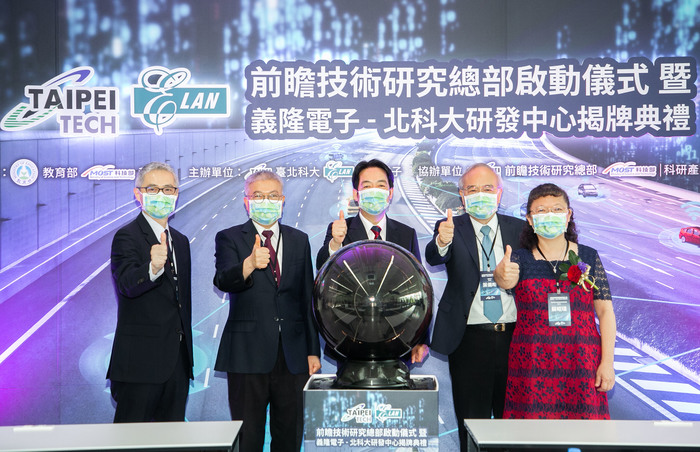University Launches Long-planned Tech Center

Article courtesy of Taipei Times (Content by Wu Po-hsuan and Jonathan Chin / Taipei Times Staff reporter, with staff writer)
The National Taipei University of Technology yesterday unveiled a research center for energy, artificial intelligence (AI) and semiconductors in collaboration with the government and private enterprises.
The center, which has been in planning for three years, is to serve as a platform for research and development, cultivation of expertise and creation of global connections, university president Wang Hsi-fu (王錫福) said at the plaque unveiling ceremony, which was attended by Vice President William Lai (賴清德).
State-of-the-art research and development capabilities would be furnished by the university’s private-sector partners, with the aim of enabling a seamless integration of education and practical application, Wang said.
The center’s operations are to be entirely funded via its partnership with the public and private sectors, including Elan Microelectronics Corp (義隆電子), which pledged NT$46 million (US$1.54 million) spread over a two-year period, he said.
Funding is also to come from Academia Sinica and the industry-university cooperative research project of the Ministry of Science and Technology, he said.
Elan is to cooperate with Academia Sinica and the center in researching adaptive cruise control and lane-keeping technologies, which are necessary in self-driving vehicle design, Elan chairman Yeh I-hau (葉儀皓) said.
The establishment of the center is a part of President Tsai Ing-wen’s (蔡英文) “five plus two” industries plan, Lai said in reference to an initiative to develop biotech, green energy, advanced manufacturing, robotics, defense and aviation, in addition to agriculture and a circular economy.
The center is bidding to collaborate with the US-based Massachusetts Institute of Technology and the University of California, Berkeley, he said, adding that these efforts would aid Taiwan’s plans to become a global leader in science and technology.